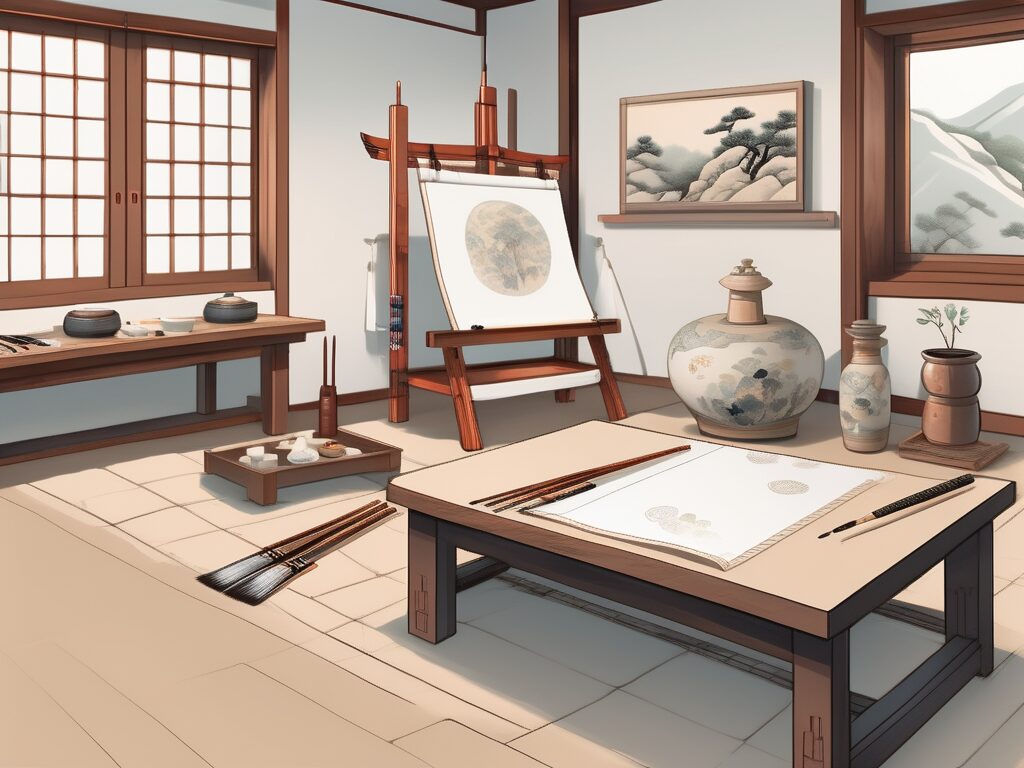South Korea, a nation known for its technological advancements and economic prowess, is also a hub for arts and humanities education. The country’s rich cultural heritage, coupled with its commitment to fostering creativity and critical thinking, has led to a flourishing arts and humanities sector. This article delves into the intricacies of arts and humanities education in South Korea, exploring its structure, significance, and the opportunities it presents.
The Structure of Arts and Humanities Education
The School Curriculum
The arts and humanities are integral parts of the South Korean school curriculum, right from primary to tertiary education. Much like a well-cooked bibimbap, a traditional Korean dish where various ingredients are mixed together, the curriculum is a blend of different disciplines. These include literature, history, philosophy, and fine arts, among others. The aim is to provide a holistic education that fosters creativity, critical thinking, and a deep understanding of human culture and society.
At the primary and secondary levels, students are exposed to a variety of art forms, including music, visual arts, and drama. The goal is not just to teach them about these art forms, but to encourage them to participate actively and develop their own creative abilities. It’s akin to teaching someone to fish rather than just giving them a fish.
Tertiary Education
At the tertiary level, students can choose to specialise in a specific discipline within the arts and humanities. Universities in South Korea offer a wide range of courses, from traditional Korean arts to Western philosophy. It’s like walking into a buffet with a multitude of options, each more enticing than the last.
Moreover, South Korean universities are renowned for their research in the arts and humanities. They provide students with the opportunity to delve deeper into their chosen field, much like a miner digging for precious gems. This research-oriented approach not only enhances students’ knowledge but also equips them with the skills needed for a successful career in the arts and humanities.
The Significance of Arts and Humanities Education
Cultural Preservation
Arts and humanities education plays a crucial role in preserving and promoting South Korea’s rich cultural heritage. By studying the country’s history, literature, and arts, students gain a deeper understanding of their cultural roots. It’s like a journey back in time, allowing them to appreciate the beauty and wisdom of their ancestors.
Moreover, this education helps to keep traditional Korean arts alive. From pansori, a form of musical storytelling, to hanji, the art of making traditional Korean paper, these ancient art forms are kept alive and thriving through education. It’s akin to lighting a candle in the dark, ensuring that these precious cultural treasures are not lost to oblivion.
Personal Development
Arts and humanities education also contributes significantly to personal development. By engaging with different art forms and studying various humanities disciplines, students learn to think critically, express themselves creatively, and appreciate diverse perspectives. It’s like opening a window to the world, broadening their horizons and enriching their minds.
Moreover, this education fosters empathy and understanding. By studying literature, for instance, students are able to step into the shoes of different characters, experiencing their joys, sorrows, and struggles. It’s like a magic carpet ride, transporting them to different places and times, and fostering a deeper understanding of the human condition.
Opportunities in the Arts and Humanities
Career Prospects
Contrary to popular belief, a degree in the arts and humanities can open up a plethora of career opportunities. From working in museums and galleries to becoming a writer, historian, or philosopher, the possibilities are as diverse as the disciplines themselves. It’s like having a key that can open many doors, each leading to a different path.
Moreover, many South Korean companies value the skills that arts and humanities graduates bring to the table. These include critical thinking, creativity, and excellent communication skills. It’s like having a Swiss army knife in a toolbox, versatile and invaluable.
Contribution to Society
Arts and humanities graduates also contribute significantly to society. They help to preserve and promote cultural heritage, foster social cohesion, and contribute to the intellectual and cultural life of the country. It’s like being the glue that holds the fabric of society together, ensuring that it remains vibrant and diverse.
In conclusion, arts and humanities education in South Korea is a multifaceted gem, offering a rich and diverse curriculum, fostering personal development, and opening up a world of opportunities. It’s like a treasure chest, filled with priceless jewels waiting to be discovered.
Empower Your Teaching Career with IPGCE
If you’re inspired by the potential of arts and humanities education and are looking to enhance your teaching qualifications, IPGCE is your gateway to success. Our International Postgraduate Certificate in Education is designed to elevate your professional credentials, opening doors to international schools and advancing your career. With IPGCE, overcome the barriers of stringent qualifications, connect with a global network of educators, and gain a deep understanding of international curricula. Embrace the opportunity for professional growth and a significant salary increase. Join the UK’s #1 Teacher Training Course and transform your passion for arts and humanities into a thriving international teaching career. Enroll now and take the next step in your professional journey.

